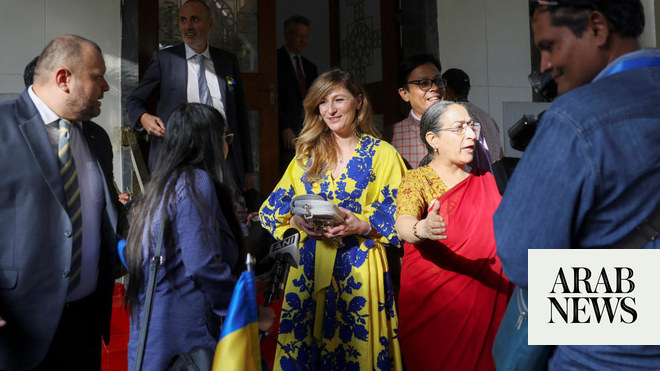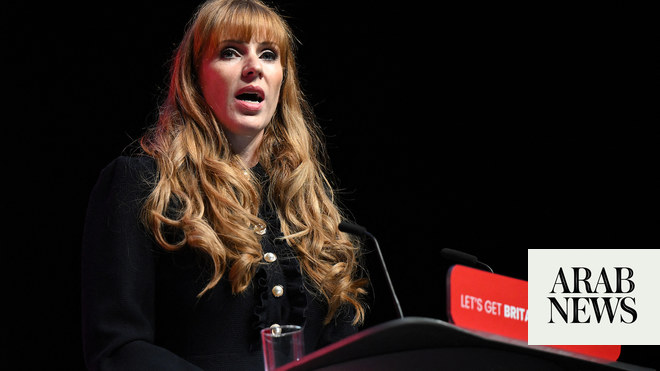
KUALA LUMPUR: The Pakatan Harapan (PH) ruling coalition in Malaysia continues to criticize Myanmar leader Aung San Suu Kyi’s treatment of the Rohingya.
And the coalition senior leader Fahmi Fadzil told Arab News on Friday that Malaysia should play a bigger role within ASEAN to stop Myanmar atrocities.
Fahmi Fadzil, a member of Parliament from the People’s Justice Party (PKR), told Arab News that he agreed with the PKR president. “The Malaysian government can and has to play a bigger role within the framework of ASEAN vis-a-vis Myanmar and the Rohingya humanitarian crisis,” he said.
He added that ratifying the UN refugee convention would be “a progressive step toward fulfilling our commitment to universal human rights.”
This week Anwar Ibrahim, who is in line to become Malaysia’s next premier in the next two years, blasted Aung San Suu Kyi for her silence over the regime’s mistreatment of Rohingya.
“Aung San Suu Kyi is a real, real disappointment,” Anwar said during an interview at Bloomberg Television in Hong Kong.
Maria Chin, a PH member of Parliament, supported Anwar in criticizing Suu Kyi. “The new government is committed to taking care of the Rohingyas,” she said, adding that the PH government would eventually ratify the UN refugee convention, but it would take time.
“It is not just the signing but adherence and change of mindset toward refugees and protecting their rights,” she said.
The Rohingya are one of the most persecuted minorities in the world; many live in deplorable conditions and face human rights violations and abuse on a daily basis. A UN report released last month accused top military officers in Myanmar of war crimes amounting to genocide against the Rohingya.
“This problem is partly because of ASEAN. It has protected this regime even when it is under military rule from international pressure over human rights violations. That is why they can get away with it,” said Debbie Stothard, the secretary-general of the International Federation for Human Rights.
The Myanmar government has intensified its grip over the Rohingya issue. This month, two Reuters journalists were jailed for reporting on the Rohingya crisis in Rakhine state. Last week, the Thai authorities stopped a conference organized by the Thailand Foreign Correspondent Club from discussing the Rohingya situation.
Eric Paulsen, legal director of Fortify Rights, told Arab News that he was optimistic about the new government. “Their policy on refugees, although still problematic, has developed over time and it is hopeful that in the new Malaysia, the government will take the leap to take the rights of refugees more seriously by ratifying the 1951 Refugee Convention,” he said.
Lilianne Fan, of the Geutanyoe Foundation, told Arab News that Malaysia had the strongest stance in ASEAN on the Rohingya situation in response to the UN report. The Malaysia foreign minister urged the Myanmar foreign minister last month to hold those responsible accountable for war crimes against humanity under the UN Genocide Convention.
The view was not shared by Dina Zaman, cofounder of the Malaysia-based think tank Imam Research. “(ASEAN’s) non-interference policy is still standing with the PH government. Malaysia doesn’t want to play a stronger role because other countries such as Singapore and Australia do not want to accept any refugees,” she said.
However, Malaysia’s strong stance against the Myanmar’s mistreatment of Rohingya does not tally with the way the new PH government handles the influx of refugees domestically.
There are more than 150,000 refugees in Malaysia, of which 100,000 are Rohingya refugees. Malaysia has never ratified the UN refugee convention, though the PH government has made it part of its election manifesto.
S. Arutchelvan, a politician from the Socialist Party of Malaysia, said that the new government was inconsistent on its refugee policy, adding that there were 60 refugees detained in Belantik camp with no access to UNHCR. “Malaysia is under pressure from civil society to ratify the convention, yet the government is still not very ‘human rights’,” he told Arab News.
Melissa Wong, a senior policy and research analyst at the Center For Public Policy Studies, told Arab News that the current refugee policy in Malaysia was short-sighted and did not cover the basic rights and protections for refugees. Malaysia is expected to be a “transit” for refugees to other countries.
“It remains to be seen whether refugee protection will be something the PH government will work toward during their term or whether it will remain just another weightless election promise,” she said.












